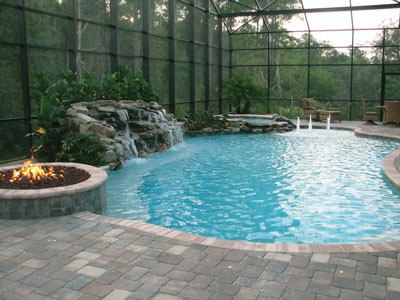After 30 years in business, a North Florida pool builder has closed its doors.
Pelican Pools owner Roswell “Butch” Eaton informed customers and creditors last month that he intends to file for bankruptcy. The St. Augustine-based builder said that even though he never missed a loan payment, the bank abruptly called in his note, and he was unable to settle the debt.
“There was nothing else we could do,” Eaton said. “I might have been able to borrow money from someone else, but I don’t think that would have solved anything. Trust me, I feel terrible about this. If you have a conscience, like I do, you’re going to feel bad.”
State industry leaders were surprised at the announcement, particularly for a company that had enjoyed a solid reputation since its founding by Eaton’s father in 1980. Indeed, officials at the Florida Swimming Pool Association said there were few warning signs that Pelican was in trouble; the company was still pulling new-pool permits as late as April.
“The past several years have shown us that this could happen to anybody,” said Wendy Parker Barsell, executive director of FSPA. “It’s happened to some of the biggest companies and some of the smallest ones. It’s not something we can predict.”
Eaton cited a number of factors that led to his company’s demise, including an influx of low-price competition, a stagnant economy, and rising fuel and materials costs. In the past six months his staff took significant pay cuts, and Eaton was forced to lower his prices to the point where margins were virtually nonexistent, he added.
In the end, however, Eaton said he was left with no alternative but to seek protection from creditors.
Meanwhile, the Northeast Chapter of FSPA on May 19 suspended Pelican’s membership, according to Chapter President Jim Batts. The chapter had received an ethics complaint from a Pelican customer weeks earlier, which it sought to rectify with Eaton and the homeowner, Batts said. But the situation worsened, and Eaton soon after notified clients of his plan to close the business.
Additional customers and unpaid subcontractors have since come forward, Batts said, though the extent of outstanding work is disputed. Eaton noted 13 unfinished pools, while Batts placed the number at 18. Pelican typically builds 40 to 50 new pools a year, Eaton said.
A small silver lining, if one can be found, did emerge from the chapter’s recent meeting: Batts said the local branch of distributor PoolCorp was willing to sell, at cost, to licensed contractors the equipment needed to complete any of Pelican’s unfinished pools.




